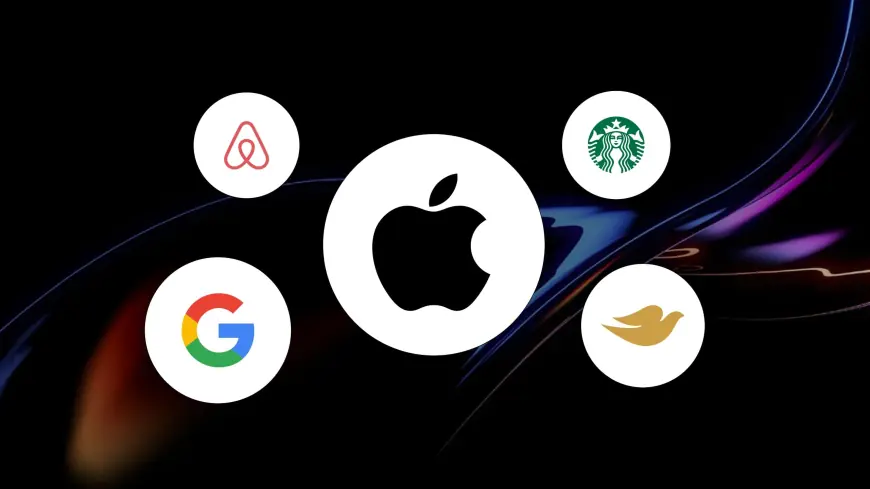The Ethical Influencer: Navigating Authenticity in Paid Promotions with Social Media Marketing Agency
Where every scroll and click can translate into commerce, influencer marketing has emerged as a cornerstone strategy for brands looking to connect with their audiences in a more personal and engaging manner


In the bustling digital marketplace, where every scroll and click can translate into commerce, influencer marketing has emerged as a cornerstone strategy for brands looking to connect with their audiences in a more personal and engaging manner. At the heart of this strategy lies the concept of authenticity—a quality that transforms ordinary promotions into trusted recommendations. However, as the lines between genuine endorsement and paid promotion blur, the role of ethics becomes pivotal. This article delves into the nuanced world of ethical influencer marketing, exploring how Social Media Marketing Agencies, particularly those like the innovative firms in Kochi, Kerala, navigate the delicate balance of authenticity in an era where every post can be a paid promotion.
The significance of authenticity in influencer marketing cannot be overstated. Audiences today crave genuine interactions, and they are increasingly savvy at detecting when an influencer's endorsement is driven by financial incentives rather than true affinity for a product or service. Herein lies the challenge for Social Media Marketing Companies: to craft campaigns that not only comply with legal standards for disclosure but also resonate with the ethos of authenticity that followers expect. This introduction sets the stage for a deeper exploration into how these agencies can uphold ethical standards while maximizing the impact of influencer partnerships.
The Rise of a Social Media Marketing Agency
The digital landscape has witnessed an unprecedented evolution with the advent of social media, leading to the birth and exponential growth of Social Media Marketing Agencies. Initially, these agencies were seen merely as facilitators of online advertising, but they have since morphed into pivotal players in brand storytelling and consumer engagement.
In regions like Kochi, Kerala, where the digital economy is burgeoning, a Social Media Marketing Agency does more than just post content; they are architects of digital influence. These agencies have harnessed the power of local culture and global trends to create campaigns that resonate on a personal level with audiences. They understand that in the realm of social media, where every individual can be an influencer, the traditional marketing paradigms must be reshaped to foster genuine connections.
The role of these agencies has become crucial in strategizing influencer partnerships. They identify influencers whose personal brand aligns with the company's values, ensuring that any promotion feels organic and authentic. A Social Media Advertising Company in Kochi, for example, might leverage local influencers who embody the region's unique blend of tradition and modernity, thereby crafting campaigns that speak directly to the community while adhering to global digital marketing standards. This section will explore how these agencies have become the backbone of ethical influencer marketing, setting the stage for authenticity in an increasingly commercial digital space.
Defining the authenticity of Influencer Marketing
Authenticity in influencer marketing is not just a buzzword; it's the bedrock upon which trust between influencers, brands, and their audiences is built. But what does authenticity really mean in this context? At its core, authenticity refers to the genuine expression of an influencer's true self, their real experiences, and honest opinions. When an influencer shares a product or service, authenticity is perceived when the endorsement aligns seamlessly with their established content style, values, and previous behavior.
For a Social Media Advertising Company, ensuring authenticity involves selecting influencers whose lifestyles or interests naturally intersect with the product they're promoting. It's not about fitting a product into the influencer's narrative but finding where the product already fits. This natural integration is what makes a promotion feel less like an ad and more like a recommendation from a friend.
This section will delve into examples where authenticity has either bolstered or damaged brand reputations. For instance, when an influencer in Kochi promotes eco-friendly products, not because it's a paid gig, but because they genuinely advocate for sustainability, the campaign resonates more deeply with the audience. Conversely, a mismatch can lead to skepticism, reducing the effectiveness of the campaign and potentially harming the influencer's credibility. Here, we'll explore how Social Media Marketing Companies work tirelessly to strike this delicate balance, ensuring that authenticity isn't just maintained but is palpable in every post.
Ethical Considerations in Paid Promotions
The intersection of commerce and content in influencer marketing brings with it a host of ethical considerations that cannot be overlooked. Transparency is the cornerstone of ethical influencer marketing. Audiences have the right to know when content is sponsored, which is not just a moral obligation but also a legal requirement in many jurisdictions.
In the United States, for example, the Federal Trade Commission (FTC) has clear guidelines stipulating that influencers must disclose any material connection to brands clearly and conspicuously. Similarly, other regions are adopting stringent rules to ensure transparency. For a Social Media Marketing Agency, navigating these regulations means educating influencers on the importance of disclosure and integrating these disclosures in a way that feels natural to the content.
Beyond transparency, there's the ethical dilemma of influence itself. Influencers wield significant power over their followers' purchasing decisions. This power comes with the responsibility to promote products that they believe in, which are safe, and beneficial, or at least not harmful to their audience. Here, agencies play a critical role in vetting products and ensuring that influencers are not just a conduit for advertising but are advocates for quality and value.
This section will discuss how agencies, including those in Kochi, Kerala, approach these ethical considerations, ensuring that while they aim for commercial success, they do not compromise on the principles of honesty, integrity, and respect for the audience. Through case studies and expert insights, we'll examine how ethical practices in paid promotions are not just about following laws but about building lasting relationships based on trust.
Strategies for Maintaining Authenticity
Maintaining authenticity in influencer marketing, particularly when dealing with paid promotions, requires a strategic approach that aligns the influencer's personal brand with the product or service being promoted. Here are some key strategies employed by Social Media Marketing Companies to ensure authenticity:
-
Influencer-Brand Alignment: The first step is selecting influencers whose values, audience, and content style naturally align with the brand. A Social Media Promotion Company might look for influencers in Kochi who are known for their local engagement or specific interests that match the product, ensuring a seamless integration.
-
Creative Freedom: Agencies often give influencers creative control over how they present the product. This freedom allows influencers to incorporate products into their content in a way that feels genuine to their narrative style, thereby preserving authenticity.
-
Long-term Partnerships: Instead of one-off posts, forming long-term relationships with influencers can lead to more authentic endorsements. Over time, the influencer's audience sees the product as part of the influencer's life, not just a paid promotion.
-
Storytelling Over Selling: Encouraging influencers to tell a story around the product rather than directly selling it. For instance, if a brand from Kochi is promoting a traditional Kerala attire, the influencer could share personal stories or cultural significance associated with the attire, making the promotion feel more like sharing a part of their heritage.
-
Transparency in Promotion: While this touches on ethics, it's also a strategy for authenticity. Clear, honest disclosure about partnerships not only complies with legal standards but also builds trust. When influencers openly discuss why they choose to work with certain brands, it reinforces their authenticity.
-
Audience Engagement: Encouraging influencers to engage with their audience about the product, answering questions, and sharing feedback. This two-way interaction can make promotions feel more like community discussions rather than top-down advertising.
This section will explore these strategies in detail, providing examples from various campaigns managed by Social Media Marketing Agencies, particularly focusing on how these strategies are implemented in culturally rich areas like Kochi, where local nuances significantly impact marketing approaches. Through these methods, agencies strive to keep the 'social' in social media marketing, ensuring that even paid content resonates with the authenticity that today's digital consumers demand.
What's Your Reaction?
 Like
0
Like
0
 Dislike
0
Dislike
0
 Love
0
Love
0
 Funny
0
Funny
0
 Angry
0
Angry
0
 Sad
0
Sad
0
 Wow
0
Wow
0













































